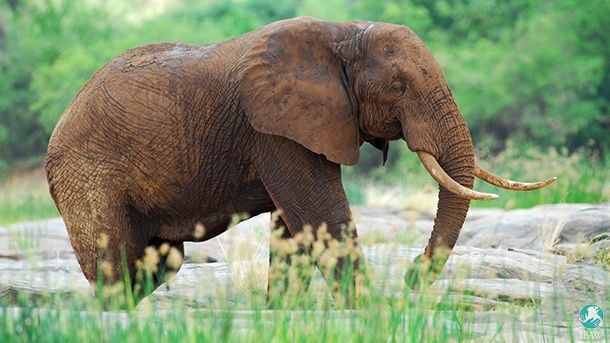|
The illegal wildlife trade is estimated to be about £18 billion. And it’s linked to extreme violence and drugs/weapons trafficking.
In London from the 11-12 October 2018, the UK Government is hosting an international illegal wildlife trade conference.
And ahead of the conference, the Duke of Cambridge, President of United for Wildlife, hosted a meeting of the United for Wildlife Financial Taskforce for the signing of the Mansion House Declaration
Over 20 banks are clamping down on money laundering by criminal gangs who are involved in poaching elephants, rhinos, tigers and other threatened species.
HSBC, Barclays, the Royal Bank of Scotland, Standard Chartered and the Bank of America Merrill Lynch are all signing an agreement committing them to training their staff to spot transactions which are linked to the trade in rhino horn, ivory and other animal parts.
The Duke met with senior staff from the banks back in May and they agreed to join a new wildlife financial taskforce set up by United for Wildlife. Traffic (a wildlife trade monitoring network) and the Royal United Services Institute are also signing.
The Duke of Cambridge launched the initiative and the commitment made by these financial institutions is laid out in the Mansion House Declaration. The six commitments in the declaration are:
1. Increasing awareness of how the financial industry can combat IWT
2. Providing training to identify and investigate suspicious activity
3. Providing intelligence to regulatory bodies and law enforcement agencies
4. Reviewing intelligence alerts received through the Taskforce and taking appropriate actions
5. Considering additional actions such as policy amendments
6. Supporting and promoting the work of the Taskforce and external supporting
The Duke of Cambridge thinks that the wealthy overseeing the trade need to be tracked down as well as the poachers.
Britain’s Penny Mordaunt, the UK’s International Development Secretary, will also sign. She will also announce that the Government will give £3.5 million to an international project to tackle money laundering by gang leaders who profit from the illegal wildlife trade.
In part, the money will help improve detection and the sharing of intelligence by law enforcement bodies in Kenya, Tanzania, Botswana, Uganda and the Ivory Coast.
If the UK can protect these species, it will also help some of the world’s poorest people to benefit from sustainable jobs which depend on the nautral world and endangered, wild animals.
The creation of the Financial Taskforce follows on from the success of the of United for Wildlife’s Transportation Taskforce. In March 2016, the Buckingham Palace Declaration in March 2016 was signed. It saw global transport industry leaders unite to identify ways the transport sector can close down criminal supply routes to thwart traffickers as part of efforts to tackle the poaching crisis. Find out here.
Go to United for Wildlife here |
